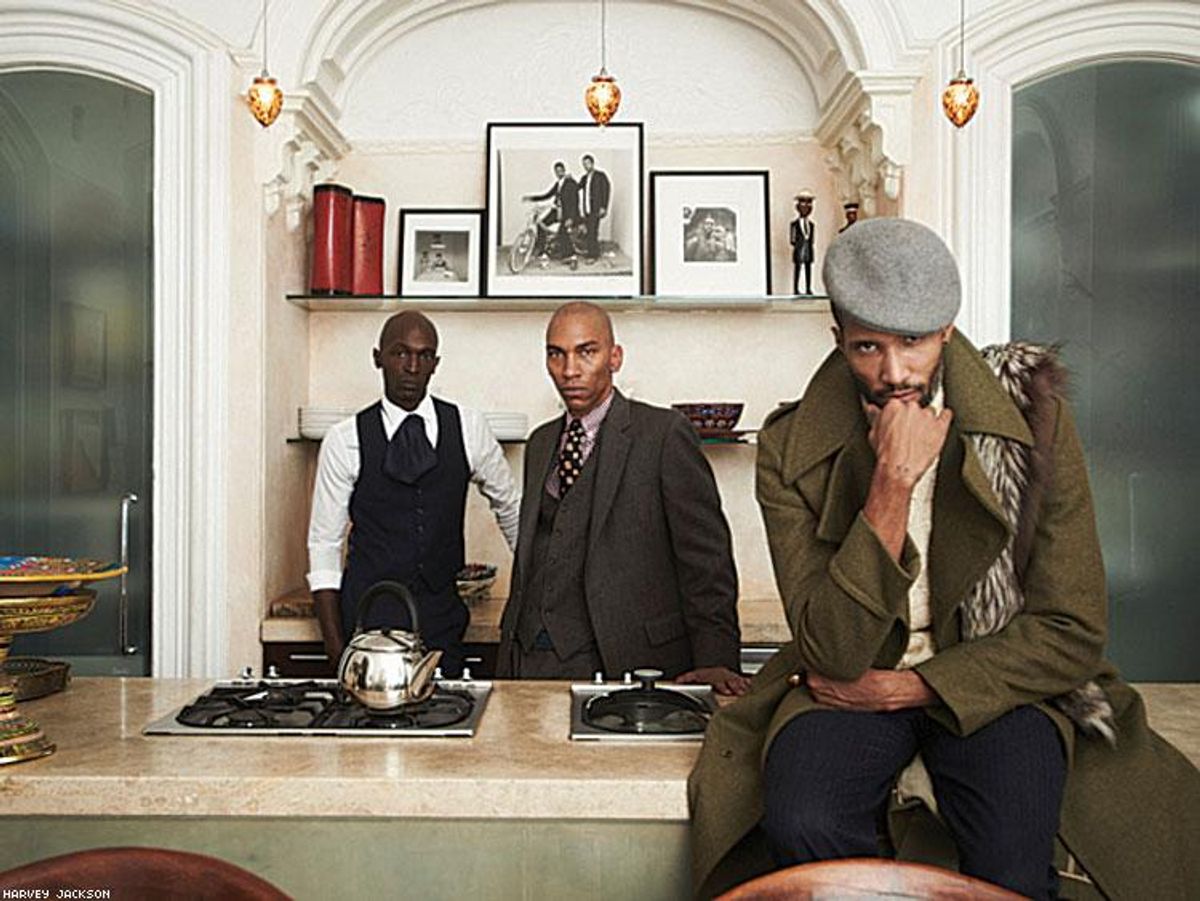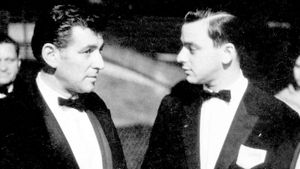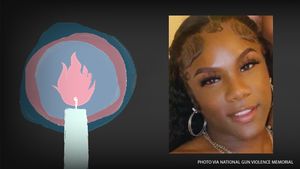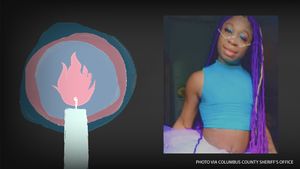From left: Kyle Banks, Andre Verdun Jones &Khary Septh.
In America, there is no shortage of tropes used to describe black gay and bisexual men: Fierce, finger-snapping queens. The brother on the DL. Choir director. Homo thug.
The public consumes these stereotypes as if they are definitive representations of the lives of black queer men, but they are not. And the striking work of three black creatives -- the talented founders of The Tenth -- is shifting the narrative.
Khary Septh, Kyle Banks, and Andre Verdun Jones are at work on the third volume of The Tenth, which is a hybrid, high-quality biannual print publication that smudges the boundaries between high and low art, culture and subcultures.

Beyond the founders' worldviews as Brooklyn-based black gay men, the trio's sensibilities for the arts and combined experiences in various fields are what distinguish The Tenth from similar media. In the past, Jones produced TV commercials and documentaries; Septh is a creative director in the fashion industry; Banks is a professionally trained singer-actor with experience in music and acting management.
"We're art directors who've worked in fashion and music and film. We're just doing what we know how to do best, in the interest of our people," Jones says. "We've made enough perfect images of white girls selling high-fashion clothes and bags for the global corporate fashion machine. We'd like to perfect our own image."
The founders are inspiring the public to reconsider common conceptions of black sexuality. Even more, the volumes are exceptionally queer -- pushing boundaries and questioning what the public considers normal. And while the founders are not afraid to combat anti-black racism, they also deal with the complications of intra-racial violence.

"But there's something else driving the process -- this need to understand our sameness as black gay men, across geographic boundaries, across class boundaries, across generations," Septh acknowledges.
Whether explored in deftly curated photographic essays, in-depth interviews, or prose reminiscent of the black-people-loving words penned by Harlem Renaissance writers, the diverse worlds of black gay and bisexual men are centered. The Tenth, which takes its name from a W.E.B. DuBois essay titled "The Talented Tenth," contains counternarratives on black gay and bisexual men's lives, but it is most valuable because it provides space for black men to tell the stories of their lives, on their own terms, using language and visuals they create.

"It's about ownership and entitlement and asserting that we too have as much right to this collective American memory, and can just as arbitrarily recolor it as anyone else can," Septh says.
The Tenth is an attempt to rewrite and make right the public's relationship to black gay and bisexual men, and our relationships to one another. The latter is the greater win.
RELATED: The Rise of the Queer Style Zine



























































































